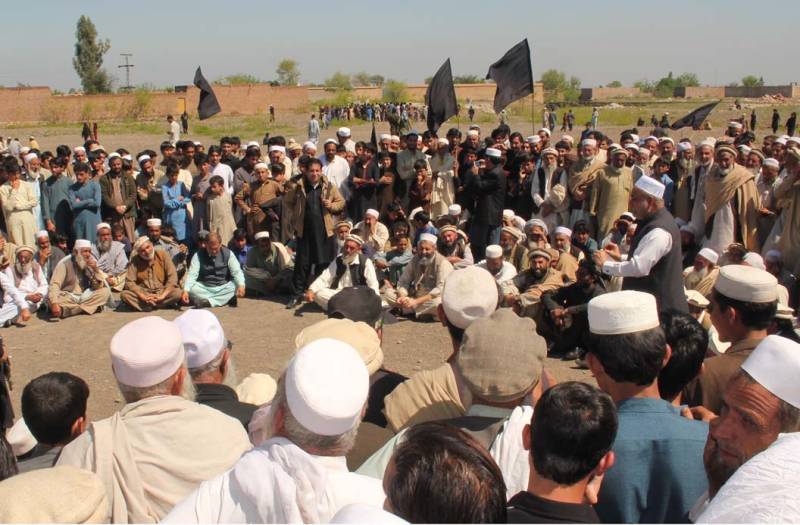Militants, guns, lawlessness, drugs, kidnapping for ransom, and illicit trade: these are some of the terms Pakistanis, elsewhere, have long associated with the country’s ilaqa-e-ghair (land of the unknown), or the Federally Administered Tribal Areas (commonly known as Fata).
Fata, since Pakistan’s inception, has been treated as a lesser and unequal part of the country with the persistence of the colonial era Frontier Crimes Regulations (FCR-1901). These regulations make Fata a lawless frontier, where the constitution governing the rest of the country is deemed void.
The FCR historically allowed the British Raj to govern (or self-govern) the tribes - taken over from Afghanistan - with little or no intervention. The Pakistani state’s decision to persist with this British model, absolving itself from any responsibility of stabilizing Fata, made the Pashtun tribes believe as if their region was the “unwanted child” for Pakistan.
It is also bewildering that even in this day and age, there exists a place like Fata in the global network of nations and states that does not afford its citizens basic human rights. The local tribal Pashtuns living in Fata have long demanded for equal citizenry and rights from the state, yet their demands were mostly ignored over the years.
It was until recently, in 2015, that a wave of political activism and pressure from the civil society along with national and regional Pashtun nationalist political parties forced the Nawaz government to form a committee for introducing reforms in the Fata region. The committee - headed by Prime Minister’s advisor Sartaj Aziz - came up with a number of recommendations; with most popular of them proposing Fata’s merger with the Khyber Pakhtunkhwa (KP) province.
For once, the committee and its recommendations gave semblance of hope to tribal Pashtuns of finally getting their right to be called, and treated as, equal citizens of the country. But to their disappointment, there was a twist in the tale; with JUI’s Fazlur Rehman, and Pakhtunkhwa Milli Awami Party’s (PKMAP) Mehmood Achakzai opposing the merger.
Fazl, along with Achakzai, have come forward as staunch opponents of Fata’s merger, calling for a referendum, giving the people of Fata the right to decide their future. Many believe that Fazl’s stance stems from his personal interests rather than interests of the tribal Pashtuns.
By calling for a separate province, Fazl believes that his strong religious voter-base in rural parts of Khyber Pakhtunwa and Fata would help him potentially form a government if Fata is to be declared a separate province. Achakzai’s opposition came as a shock to many as its ideological sister Awami National Party (ANP) strongly advocates for a merger.
One of the arguments of both Fazl and Ackhzai, criticizing the reforms committee, is the haste in which the report of recommendations was prepared. They also blame the committee of only taking a “few maliks, and tribal elders” on board. This argument is a little surprising as Fata, culturally and historically, has been represented by its Maliks and Tribal elders.
In the current scenario, where the region lacks infrastructure to conduct any form of referendum, a good barometer to gauge the will of the people is either through the tribal elders, or the demands put forward by protestors from Fata. The FATA Sisyasi Ittehad (political alliance), which includes a number of elders and activists from the region, have arranged numerous protests since last year calling for Fata’s merger with KP.
Many supporters of Fata’s merger were sceptical that any delay in introducing reforms and abolishing the FCR might be linked to Pakistan army’s ongoing operation against the militants, and any future “proxy” utility of the region. Such reservations were also quashed recently when the Pakistan Army Chief, General Bajwa, assured of Army’s support in mainstreaming FATA, and its merger with the KP province.
What currently goes in Fata’s favour is the national consensus developed among the national and regional political parties for mainstreaming Fata. Pakistan Army’s reassurance on the matter also strengthens the case for the merger and introduction of reforms. Political aberrations, in forms of opposition by the JUI-F and PKMAP, should not serve as a deterrent for holding back the long-overdue reforms in the tribal areas.
The Nawaz-led PML-N government is presented with a huge opportunity to do good for the long-ignored people of Fata. By delaying - or even suspending - reforms, it would do nothing but further alienate the tribal Pashtuns who have always had to prove their unconditional affection and patriotism towards Pakistan.






